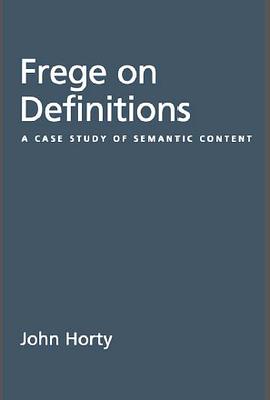

The preface acknowledgements include: part one: contextual investigations; chapter one 1. the holistic/systemic approach 2. blame dynamics 3. the idea of feedback 4. 'we have the war we deserve' 5. conclusion; chapter two 1. the setting of scholarly thought 1.1 geometrical thought 1.2 flat thought 2. epistemology 3. driving up a one-way street 3.1 knowledge in the contemporary context 3.2 philosophy's view on consciousness 4. system theoretical versus systemic 5. conclusion; and chapter three 1. an outline of system theory 1.1 beginnings 1.2 soft systems thinking 1.3 critical systems thinking 2. epistemological theorizing in system theory 3. the forgotten epistemological agenda of system theory 4. conclusion part two: system theoretical investigations. It includes: chapter four 1. the bertalanffyan understanding of the idea of emergent property 2. emergent property understood as unforeseen consequence 3. emergent property understood as reference point 4. summary of the idea of emergent property as understood in system theory 5. system theory's preliminary understanding of consciousness 6. two required immediate investigations 7. conclusion; and chapter five 1. the transcendental ability of relational characteristics 2. the relational characteristic as dependent upon complexes 3. complexes as dependent upon the relational characteristic 4. the systemic governance 5. a closer look at the systemic governance 6. conclusion. It covers: chapter six 1. panoramic view of the work of von bertalanffy 2. the project of general system theory 3. the foremost object of interest of general system theory 4. the nature of bertalanffyan principles 5. continual justification 6. the way toward phenomenology 7. conclusion; part three: phenomenological investigations; and chapter seven 1. appearances 2. introductory notes to the theory of intentionality 2.1 an analogy: hearing and listening 2.2 perceiving and intending 3. objective phenomena and intended phenomena 4. the epistemological systemicity between perception and intention 5. conclusion. It also includes: chapter eight 1. the dynamics of perception of appearances: the cube example 2. the intention of identities 3. summary of identity as understood in phenomenology 3.1 reflections of the bertalanffyan understanding of emergent property 3.2 reflections of the relational and referential understanding of emergent property 3.3 reflections of the epistemological understanding of emergent property 4. system theoretical emergent properties as phenomenological identities 5. two additional aspects of emergent properties 6. conclusion; and chapter nine 1. intentionality: the classic description 2. clarifying the classic description 3. the eidetic inclination of intentionality 4. the epistemological actualizer of intentionality 5. conclusion part four: systemic epistemological investigations. It also covers: chapter ten 1. the dual structure of intuition 1.1 continuity/and so forth: the intuitive mode of development 1.2 repetition/one can always again: the intuitive mode of repetition 2. continuity and repetition in a bertalanffyan context 2.1 the inductive nature of the intuitive mode of repetition 3. a preliminary study of intuition's two modes 3.1 the mode of development: intention intuiting 3.2 the mode of repetition: intuition intending 3.3 the mutual exclusiveness of intuition's two modes 3.4 intuition's two modes: both/and, either/or 4. dogmatism: the mode of repetition of intuitions 5. bounded rationality: the mode of development of intuitions 6. conclusion. It also includes: chapter eleven 1. exploring dogmatism and bounded rationality 2. the primacy of systemicity 2.1 the sartrean dialectic 3. consciousness' choice 3.1 the self-justification of consciousness' choice 3.2 the self-responsibility of consciousness' choice 4. conclusion; chapter twelve 1. critical presentation of the theory of boundary judgements 2. reconsidering the presentation 3. results of the presentation 4. a systemic epistemology for system theory 5. conclusion. It features: part five: applied investigations; chapter thirteen 1. the proposal to ground soft systems methodology within an appropriate social theory 1.1 the basis of the proposal 2. the fundamental issue in the habermasian incorporation 3. the strong case for epistemological alienation 4. specific contributions to system theory's embrace of epistemological alienation 4.1 unconscious forces 4.2 ideal speech situation 5. the systemic epistemology as fundamental contributor 6. three basic contributions to system theory 7. conclusion; chapter fourteen 1. the basic critical practice 2. the systemic epistemology and soft systems methodology 3. the systemic epistemology and boundary judgements 4. conclusion. It also features: chapter fifteen 1. organizational learning 2. system theoretical understanding in organizational learning 3. epistemological development in organizational learning 4. pointers toward the relevance of the systemic epistemology to organizational learning 5. toward the operationalization of the present investigations in the field of organizational learning 6. framework of proposed future research in organizational learning 7. conclusion concluding reflections chapter sixteen 1. main contributions 2. the wars we deserve 3. on the inherent interdisciplinarity between system theory and phenomenology 3.1 reservations regarding a chronological approach to phenomenology 3.2 the case for sartrean phenomenology as the fundamental interdisciplinary partner to system theory 4. conclusion bibliography.
具體描述
讀後感
評分
評分
評分
評分
用戶評價
相關圖書
本站所有內容均為互聯網搜索引擎提供的公開搜索信息,本站不存儲任何數據與內容,任何內容與數據均與本站無關,如有需要請聯繫相關搜索引擎包括但不限於百度,google,bing,sogou 等
© 2025 qciss.net All Rights Reserved. 小哈圖書下載中心 版权所有




















